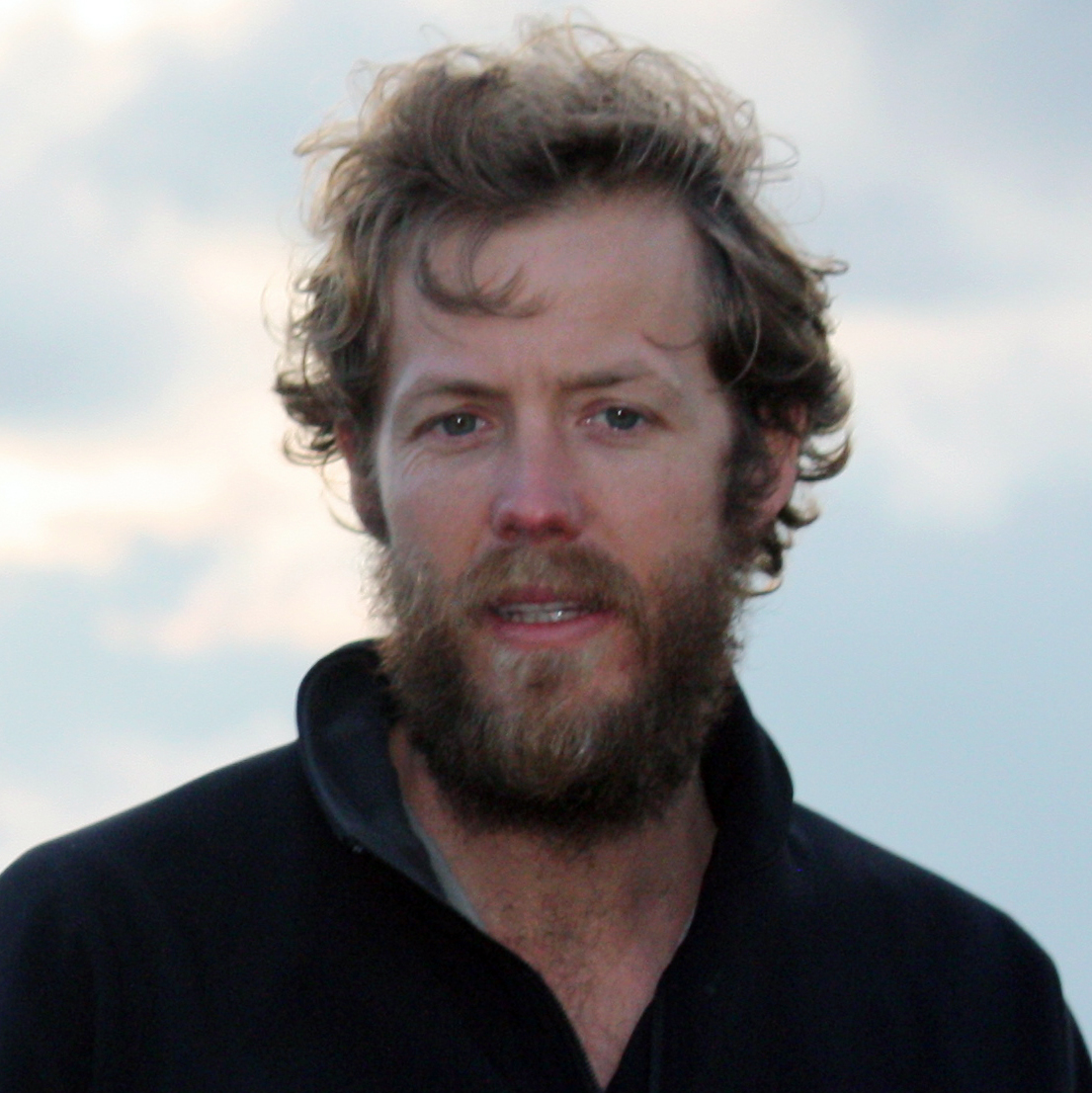Members

Jan Pluháček
Co-Chair/EEP coordinator for the common hippopotamus / Olomouc Zoo, Czechia
I perform research on hippos in captive environment, focusing on topics like suckling behaviour or sex ratio. In addition, I am keeper of the European studbook and coordinator of European breeding programme for common hippopotamus aiming to keep population viable and diverse.

Rebecca Lewison
Co-Chair/ Professor, San Diego State University, United States
My area of research focuses on common hippo foraging behavior and population dynamics in response to changing environmental conditions. I have a particular interest in hippo telemetry. My current efforts focus on supporting collaborative and inter-institutional initiatives on hippos as well as compiling country-level data for Red List assessments.

Josue ARUNA
Executive Director of Congo Basin Conservation Society / CBCS-Network
Main interest and activity in hippos: my interest is related to the community-based protection and conservation of common hippopotamus of Lake Tanganyika and the Ruzizi River a transboundary wetland between DRC, Rwanda and Burundi where we are developing community-based strategies for species protection.

Elie Bogui
Research Associate, Centre Suisse de Recherches Scientifiques in Côte d'Ivoire/Lecturer, University of Man, Côte d'Ivoire
My interest is related to scientific research and the involvement of local communities (environmental education) in the conservation of the pygmy hippopotamus in Côte d'Ivoire. Our main work is carried out in the Taï National Park where we have the largest number of pygmy hippopotamus individuals.

Lynne R. Baker
Senior Research Associate, Institute for Development, Ecology, Conservation, and Cooperation
Interest in hippo conservation: Hippopotamus amphibius; human-hippo interactions; community-based conservation; survey methods; Nigeria/West Africa

Paul Scholte
Program Director Deutsche Gesellschaft für Internationale Zusammenarbeit
Long-term monitoring of hippo populations in the dystrophic savannas of
West and Central Africa. The impact of hippo (and their disappearance)
on vegetation, andscape and other fauna.

Chansa Chomba
Senior Lecturer, School of Agriculture and Natural Resources, Mulungushi University, Zambia
(i) Population dynamics of the hippo, which is important in addressing competing demands between various user groups, thus the hunting community on one hand and photographic tourism on the other. (ii) Hippo pasture (grazing areas) as this is critical in ensuring the long-term survival of the population and is an important tool in securing the critical components of the hippo habitats as anthropogenetic activities are the major factors responsible for loss of hippo habitat. (ii) Law enforcement, as well as compliance with national and international legislative frame works such as the Convention on International Trade in Endangered Species of Wild Fauna and Flora (CITES).

Gabriella Flacke, DVM, MVSc, PhD
Pygmy Hippo SSP Veterinary Advisor/Associate Veterinarian, Zoo Miami
I am primarily involved with conservation and research with pygmy hippos but am interested in both hippo species. My PhD research focused on the pygmy hippo; I conducted field surveys in the Taï National Park in Côte d'Ivoire and also investigated ways to optimize health, reproduction and well-being under managed care. Together with several collaborators, I am trying to continue to support conservation and research efforts for this species throughout its native habitat, as so little is known about its basic ecology and biology.

Beatrice Steck
Global studbook keeper and EEP coordinator for the pygmy hippopotamus/Basel Zoo, Switzerland
My aim is to monitor the demographic and genetic development of the captive population of the pygmy hippopotamus worldwide in the global studbook for this species. In addition, I am responsible for the European breeding programme for this species with the objective of maintaining a healthy and viable population in European zoos. In addition, I am interested to inform the zoos holding this species about current conservation and research topics relating to pygmy hippos.

Phillip T. Robinson, MS, DVM
Charter Dipl. ACZM
I first conducted field work on the pygmy hippo in Liberia and Sierra Leone in 1968, and have promoted protected area conservation in Liberia through survey work for Sapo National Park and other forest areas in collaboration with Liberia's Forestry Development Authority. Co-author of The Pygmy Hippo Story: West Africa's Enigma of the Rainforest, Life at the Zoo, and Travel Sketches from Liberia: Johann Buttikofer's 19th Century Rainforest Travels in West Africa. I reside in northern Michigan (USA) and focus on sharing nature photography at www.HigginsLakeNature.com

Thierry Aebischer
Head of Conservation and Biodiversity/Chinko Conservation Area/African Parks Central African Republic
I'm interested in complex, species-rich ecosystems and their resilient functioning as well as ecological and evolutionary processes and their long-term conservation and restoration at large-scale. Currently I work in Eastern CAR in an area drained by the Chinko River, one of the most pristine tropical savanna rivers on earth that has high potential to harbour a large prospering common hippopotamus population. As one of the last grass-feeding megaherbivores they play a fundamental role in this freshwater system of Central Africa.
Inza Koné
Centre Suisse de Recherches Scientifiques en Côte d'IvoireUFR Biosciences, Université Félix Houphouët-Boigny
My work focuses on the management of natural resources and the conservation of large mammals, especially primates and pygmy hippos. This work makes the link between ecology, economy and culture for the empowerment of rural communities. In my approach, research feeds actions and vice-versa.

Karim Ouattara
UFR Biosciences University Félix Houpouhet Boigny/Centre Suisse de Recherches Scientifiques en Côte d Ivoire
Principal investigator and current manager of the Hippo project in Côte d'Ivoire.
Supervisor of field research (to date 6 masters and 2 PhDs)
Member of expertise group of International Union
of Conservation of Nature for Pygmy hippo.

Ollo Théophille Dibloni
INERA/CNRST
My research on hippos involves investigation of their habitat and their conservation in West Africa, and in Burkina Faso in particular as many populations are facing the problem of fragmentation there. Therefore, my aim is to summarise the status of all common hippo populations in at least eight West African countries. In addition, I deal with human-hippo conflict and the solutions how to mitigate it.

Deo Kujirakwinja
Wildlife Conservation Society
Deo has been working on Hippopotamus since 2009 during his MSc. Currently working with ICCN to protect hippos in the Luama Landscape (DRC). In the meantime, he works for the Wildlife Conservation Society in DRC.

Chris Ransom
Durrell Wildlife Conservation Trust
I have been involved in conservation across Africa for almost 20 years and spent several years working in and involved with projects in West Africa with a focus on pygmy hippos. As part of this work I led, in 2010, on the first Conservation Strategy for pygmy hippos and have been involved with the Specialist Group since that time.

Douglas J McCauley
Professor, University of California Santa Barbara
My research on the common hippopotamus is centered on understanding how hippos shape both aquatic and terrestrial ecosystem processes. Our group has a particular interest in the intersections between hippo spatial ecology and ecosystem ecology. With colleagues in Tanzania, we conducted the first successful study to track wild hippos using GPS technology.

Erustus Kanga
Secretary for Wildlife at the Ministry of Tourism & Wildlife, Kenya
Dr. Erustus Kanga has a long trajectory in biodiversity conservation including 16 years of work with the Kenya Wildlife Service where he was responsible for Biodiversity Research and Monitoring across the Protected Areas. He has over 20 years' experience in biodiversity conservation, climate change vulnerability assessment and mapping, bio-enterprises, and community livelihood support.
In 2017, he was awarded the Head of State Commendation (HSC) in recognition for his outstanding and distinguished services in the field of biodiversity conservation.
In his current
responsibilities as the Secretary Wildlife, he provides leadership on strategy
and policy direction, as well as stakeholder coordination for the wildlife sector
in Kenya. Dr. Kanga attained his PhD in Natural Resources Conservation from the
University of Groningen in the Netherlands in the year 2011, with a thesis on
"The Kenyan Hippo". He has authored over 25 publications, and is proficient in
Conservation of Biodiversity.
Dr. Camille Fritsch
University of KwaZulu-Natal, South Africa
Dr. Fritsch focuses on hippo research and management inside and outside protected areas in South Africa.

Lochran W Traill
University of Leeds / University of the Witwatersrand
Lochran W Traill has a research interest in large African mammal ecology and conservation. That includes hippo ecology and conservation, with a focus on the spatial ecology of common hippo and the mitigation of human hippo conflict.

Markéta Antonínová
African Parks Network

Alex Peal
Society for the Conservation of Nature in Liberia (SCNL)

Annika Hillers
Wild Chimpanzee Foundation

Jerry Garteh
Society for the Conservation of Nature in Liberia (SCNL)

Colleen T. Downs
SARChI Research Chair in Ecosystem health and biodiversity

